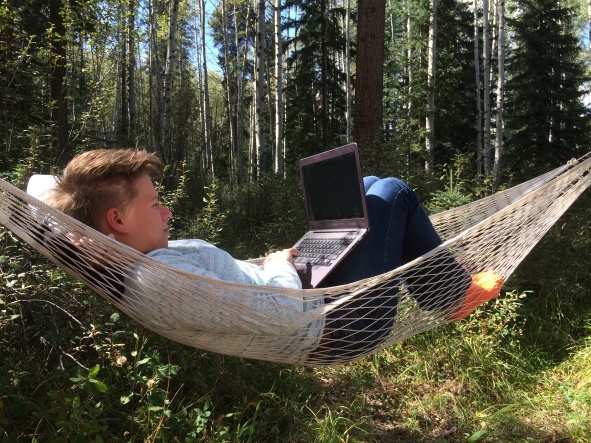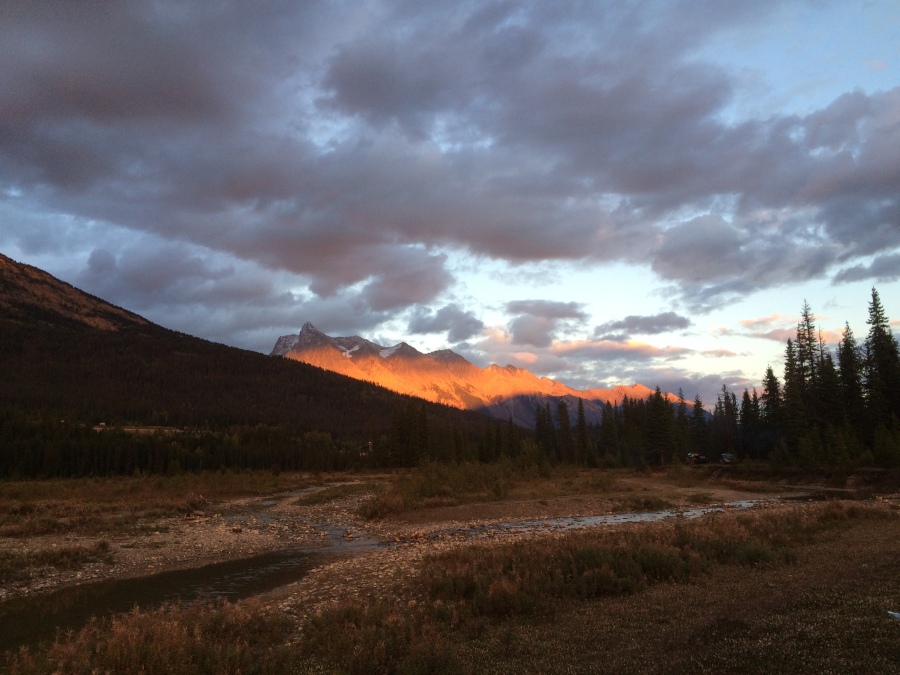We talk a lot about boondocking, or “dry camping.” We love it, but it isn’t the norm for RV full-timers and it certainly takes a lot of work! We figured we’d give the “crash course” in boondocking for those who want to know more about what exactly it entails.

First, recognize that boondocking is not for everyone!
Pros
- Solitude- no “sardine can” campgrounds
- Free, or very cheap
- Typically (but not always) more scenic
- More adventurous and self-reliant

Cons
- Solitude- no neighbors to socialize with
- Sites can be more difficult to access and/or further away from towns
- Requires a bit more travel planning and flexibility, especially if you need cell coverage
- No hookups means very strict conservation of water (depending on your tank sizes) and sometimes energy (you probably won’t be running an air conditioner all day long if you’re boondocking!)
- Unlike at a campground, there’s no one “in charge” to maintain order if you happen to have neighbors who are drunk and disorderly, steal things, or whatever else. However, there are many fewer people in general, so we have never directly experienced problems beyond people being a tiny bit inconsiderate. We choose to operate based on trust with a side of door locking and it’s generally worked in our favor.
Basically, we have decided that most of the time, we value the views and solitude (and $40/night!) over the conveniences of an RV resort. We are willing to put in the work and make some sacrifices in exchange for the beauty we enjoy out our front door each day.

If you do want to try it, here is what you need:
1. A site
We use www.freecampsites.net to find spots. Land owned by BLM (Bureau of Land Management) or the National Forest Service is almost always free to camp anywhere for 14 days. Sometimes state parks or other government agencies will have campgrounds, too, often for just a small fee. We haven’t had to overnight at a WalMart yet (many of which provide free overnight parking but are not places you would want to camp), so know that there are lots of good spots out there, especially here in the West.

2. Some means of generating electricity
We have a great solar setup but of course, that takes a big investment of time and money to install. (Setting up solar can also be many blog posts in and of itself!) Many people who boondock occasionally, or are just starting out, rely on generators. We have one, too, that we use as a backup. It is especially useful after several days in shady sites or rainy weather (or both, like here in the Pacific Northwest). Be considerate with your generator, especially if it is loud. Try to set your generator/your rig up away from any neighbors and run it at a non-intrusive time (like late morning or midday when people are typically out and about). Running a generator all night right outside your neighbor’s window is pretty much guaranteed to make you Enemy #1, so don’t be that guy. Charge up your batteries and call it a day, don’t run it all day long to power the A/C. Similarly, having a three-way fridge that runs on propane makes it much easier to cut the (generator) cord.

3. Mobile Internet
This is only a requirement if you work remotely, but in that case, it’s super important! Nik wrote all about our mobile internet set-up, but if you really want the low-down, head over to Technomadia and their forum and resource center, RV Mobile Internet. If you just want to make sure you have cell coverage, the cell providers put out coverage maps. The maps aren’t great, but that’s what we’ve got.

4. Tank of fresh water and a place to dump full tanks
Before you begin boondocking, make sure you have sanitized your water system. Once you have done that, you can fill your freshwater tank. That’s important for boondocking since you won’t be hooked up to city water like at a campground! When it is time to dump the grey and black tanks, we use the Sanidumps app to find a dump station. No, you can’t just dump water from grey tanks out on the ground without some serious filtering and treating.
5. Propane
This is what we use to power the stove, oven, water heater, and fridge. In the cold, the furnace is powered (very inefficiently) by propane, too, but since we aren’t winter camping, on cold nights we have gotten by with lots of bundling up, heavy blankets, and back in spring, space heaters (you don’t have to go that far, we are weird). Our propane tank is 40lb and lasts for a very long time between refilling, and when we do refill, it is cheap. Having your propane system in good working order is necessary for boondocking, in my experience.
6. Willpower to conserve!
For us, fresh water is always our limiting factor. Moving is hard work, and most places are pretty- we want to stay and enjoy them! That means we shower less often than we did in a sticks & bricks house so we don’t use up all our water. We shower in the rig sometimes (strict navy showers), but usually we find a gym or we are just gross. I know, I know… Baby wipes are your friend. 😛 If electricity is your limiting factor, make sure you’ve switched the lights out for LED bulbs and use a Kill-A-Watt to figure out what other energy draws you can eliminate or reduce.

7. Good Neighborliness
That is a word, I looked it up. By this I just mean that you should follow any posted rules and always, always “leave it cleaner than you found it.” You typically have to pack out your own trash at boondocking sites. You wouldn’t believe how many people leave the place an absolute wreck for the next person who comes along. This is not only rude, it can lead to wildlife like mice, raccoons, or bears in your camp or bears being put down when they learn to see humans camps as a food source. Over time you also run the risk that the site will no longer allow camping because of bad behavior. Keep a clean camp, take care of the space, don’t be selfish.

Boondocking takes a fair bit of work and definitely takes an adventurous spirit! The payoff? Sites like this:

Worth it? I think so. 🙂

This is good information. We’re considering buying a tow behind trailer next year as summer hotel rates in Alaska are INSANE and rooms can be hard to come by. Up here you can pretty much set up camp wherever, and I anticipate camping in some random DOT pull-offs. Now I need to think about what that means for showers…
LikeLike
Sounds like a fun way to spend the summer. And yep, minimizing showers really is the number one way to extend how long you can stay in one place, but if you’re always in the move you should be able to find water and dump stations pretty frequently at least. Good luck!
LikeLike